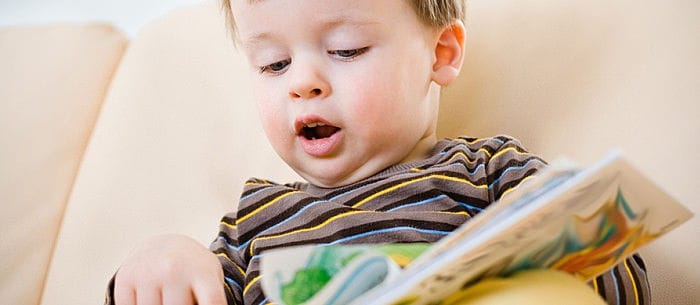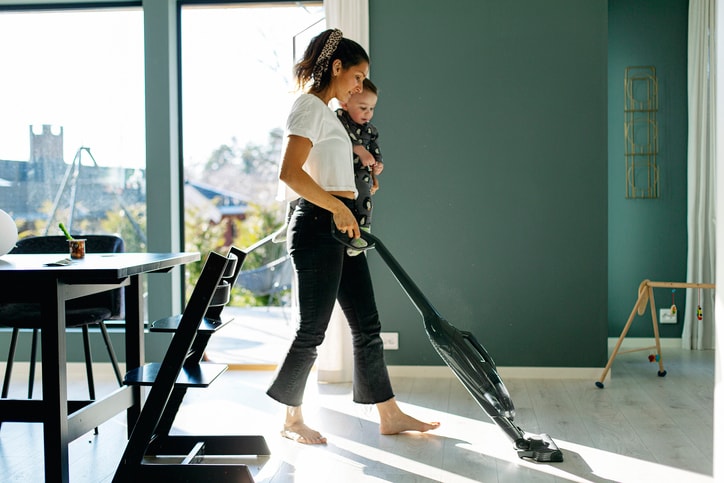Your preschooler is growing by leaps — literally! She’s actually leaping now, and her motor skills aren’t the only abilities that are zooming ahead full force. Between 3 and 5 years, your little learner is building the skills that she’ll use when she gets to kindergarten — and beyond.
Here are some fun, simple activities for 3-year-olds and older kids in preschool that can help build your little one’s skills while you both have a great time.
- Practice Precision With Fine Motor Fun
During the preschool years, your child is developing the hand and finger skills necessary to use a fork and spoon, copy shapes and print a few letters, according to the American Academy of Pediatrics (AAP). Karen Dobyns, occupational therapist and blogger behind Miss Awesomeness, notes that “improving your child’s fine motor skills becomes nearly effortless once you become aware of all the opportunities that arise in your typical activities of daily life!”You don’t have to go out and buy elaborate toys or come up with over-the-top games to create activities for 3-year-olds, 4-year-olds or 5-year-olds. Dobyns suggests adding a turkey baster or spoons to your preschooler’s bath. She can use these to draw water lines on the shower wall, or simply practice collecting and then spilling the water.
Coloring with crayons or painting with brushes is a no-brainer, but why not go a step beyond everyday artsy play? “Make funny-looking castles with leftover Styrofoam and golf tees, or alien hats by threading pipe cleaners through a colander,” Dobyns suggests. These projects build eye-hand coordination and get your child thinking creatively.
- Jump Into Gross Motor Games
The AAP notes that by age 4, most children can hop and stand on one foot for a few seconds, kick a ball, throw and catch. At 5, your preschooler has even more gross, or large, motor skills. She can somersault, swing, climb and maybe even skip.If you’re not sure how to build gross motor development, an obstacle course is an easy answer. You can set a course up outside in sunny summer weather or build one indoors to keep the fun going, rain or shine. Use pillows, plastic cones, ribbons, scarves, masking tape or twigs to outline the course. As your child grows and becomes more adept at navigating it, make it harder for her. Add twists, turns and obstacles to jump over, or call out different motions to make as she works her way through. For example, yell “lion walk!” and have her walk on both her hands and feet, or say “skip” or tell her to turn around and go backwards.
- Get Creatively Cognitive
What’s going on in your little one’s head? During the preschool years, she’s getting imaginative with pretend play, sorting items into categories and beginning to understand sequencing concepts such as time, according to the AAP.Your child is also building fundamental reading skills. Katie Fitzgerald, children’s librarian and creator of Story Time Secrets, says, “Reading books to preschoolers exposes them to rich vocabulary that we don’t always use in normal day-to-day speech.” Instead of reading a book to your child, actively read it with her, taking turns pointing to the pictures and naming the letters.
Literacy activities for 3-year-olds and older preschoolers can also include viewing art. Fitzgerald notes, “Since reading is a visual experience for prereading children, parents should look for books with beautiful illustrations, where the pictures and text work together to tell a story. ” Play up this idea and pretend that the illustrations are artworks in a museum. Ask your child, “What’s going on in this picture?” This beefs up her budding literary skills and gets her thinking critically.
- Encourage Budding Social and Emotional Skills
The transition into pre-k brings a change from the me-me-me attitude of the toddler time to a much more cooperative mindset. Your child is ready to follow rules, share with others and work out solutions to conflicts, notes the AAP. How can you keep your child cooperative? Use every opportunity possible! Build a tower of blocks with your child — give her a few directions to follow, and encourage her to give you a few directions too. Instead of reading a story, collaborate and create a story out loud with your child. Start off with the beginning, and let her continue where you leave off.
Want more fun activities? Try these Fun Things to Do With Preschoolers.
Erica Loop is a mom, parenting writer and educator with an M.S. in child development. When she’s not teaching, she’s creating kids’ activities for her blog Mini Monets and Mommies.

